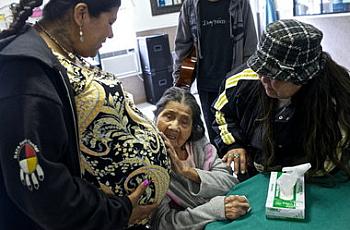
Bill Graves
Writer

Writer
I have worked as a daily newspaper journalist for 30 years, the last 20 at The Oregonian. I covered education most of that time, but in the last five years I also have been covering other social issues, including gay rights, health care, poverty and high-interest consumer lending. More recently, I have been covering health care and higher education. I co-authored a book on education reform called “Poisoned Apple,” published in 1996, and I served as president of the Education Writers Association from 1997 through 1999. I earned a bachelor’s degree in English at the University of Puget Sound in Tacoma, Wash., in 1972, and a Master’s degree in English at Western Washington State University in Bellingham, Wash., in 1976. I am 60, and my wife, Karin, and I have have three grown children.
<p>Candida King Bird, 38, the diabetic pregnant mother featured in The Oregonian earlier this month, delivered a healthy 9-pound, 12-ounce girl on Thursday.</p>

<p>By most measures, Native Americans' health problems exceed the average, and it's even worse for urban Indians who can't tap social and health services available on distant reservations. The problem's not new, but some of the solutions are.</p>

<p>More than 200 Native American doctors are attending a conference in Portland this week to look at health disparities affecting tribes across the nation.</p>
<p>About 70 percent of the state’s more than 50,000 Native Americans live in Multnomah County, home to Oregon’s largest city, Portland, and have rates of health problems from infant mortality to AIDS that far exceed the general population.</p>